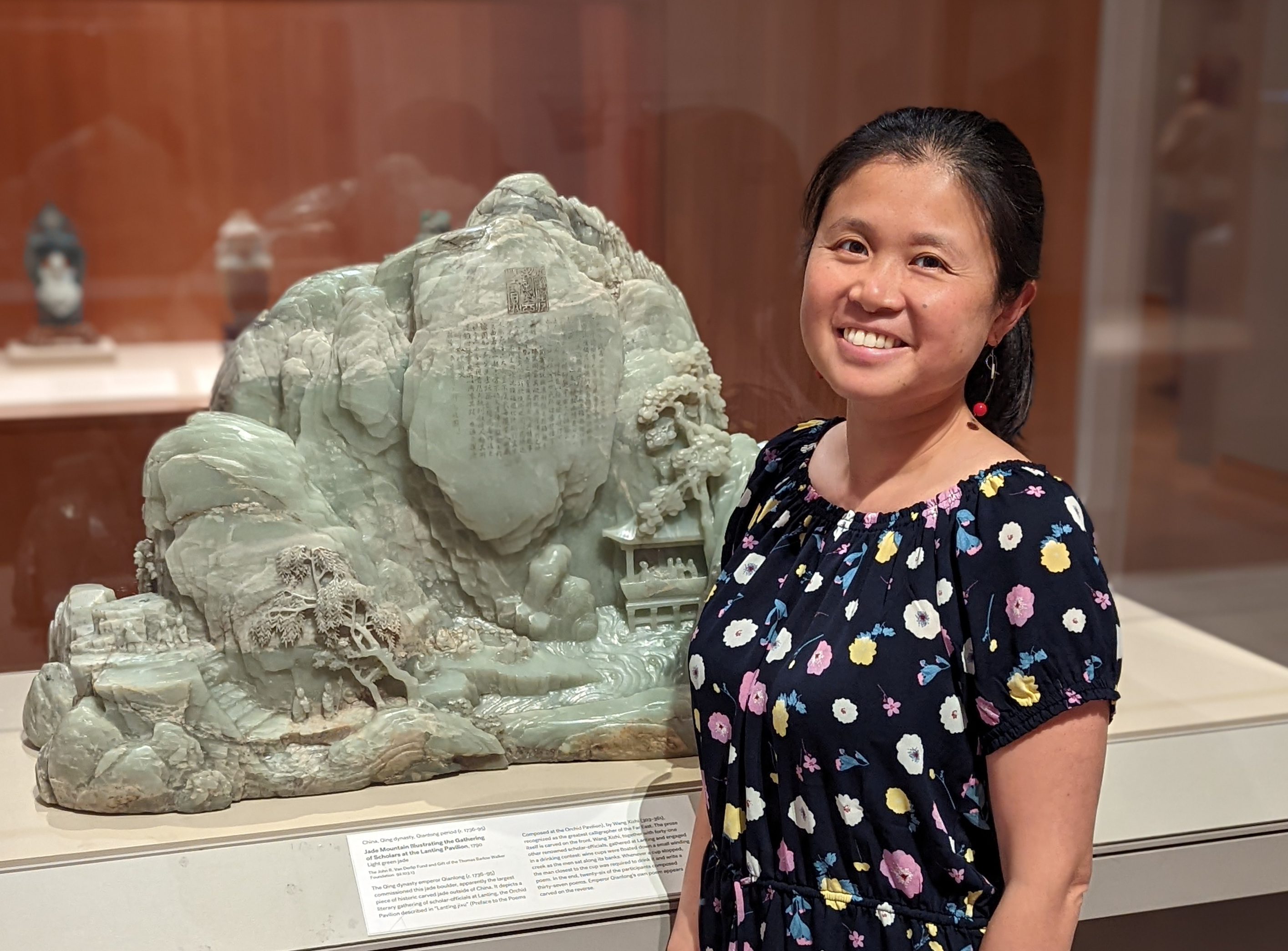MSU History faculty member awarded prestigious fellowship from an organization closely connected to Albert Einstein
April 15, 2025 - Becky Jensen

Yulian Wu, in front of a nephrite jade mountain carved in the Qing dynasty (1644-1912), Minneapolis Institute of Art.
Yulian Wu, Associate Professor of history at Michigan State University, was recently awarded a fellowship with the Institute of Advanced Studies (IAS) in Social Science, one of the world’s leading centers for curiosity-driven basic research in Princeton, New Jersey. Albert Einstein was one of the organization’s first professors and remained there until his death in 1955.
Wu will be a residential member of the School of Historical Studies for the 2025-2026 academic year. During this fellowship, she will be able to take a deep dive into her research surrounding nephrite jade, the most coveted luxury mineral in Qing China (1644–1912), the last imperial dynasty in China. She explores the dynamics between resource management and Qing empire-building.
Not only has Wu made nephrite jade a part of her research, but it has also always been a part of her life, as the Chinese character that represents the mineral, 玉, is literally in her name: Wu Yulian, 吳玉廉.
The beautiful pale green mineral (see photos) has been connected to Confucian values since antiquity. In the eighteenth century, it gained new significance when the Qing court monopolized the procurement of jade in its new frontier Xinjiang, a vast Central Asian territory rich in jade deposits. The expansion of the Qing empire transformed jade from a rare and foreign commodity into an abundant domestic resource.

Nephrite Jade, a mineral. Photo Courtesy Yulian Wu.
“This mineral helped to shape politics and governance, so it carries a much richer meaning and should not be understood merely as a luxury good. My project will contribute to our understanding of the dynamics between resource management and governance in early modern China. I hope to offer new insights into how resource was conceptualized and understood in a premodern context,” said Wu.
“Yulian Wu has emerged as one of the leading scholars of Late Imperial China, and her work on jade is at the forefront of the study of global material culture. Her current research is poised to make major contributions to both fields," said Michael Stamm, MSU History Chair and Professor.
Wu says that during her IAS fellowship year, she is excited to read and analyze the primary sources she has collected for the project and hopes to make progress on her book, tentatively titled “Crafting Jade: The Construction of Objects and Empire in Eighteenth-Century China.”
Wu is the author of another book titled “Luxurious Networks: Salt Merchants, Status, and Statecraft in Eighteenth- Century China (Stanford University Press, 2017), which explores the transformation of Huizhou salt merchants’ social and political status under the Manchu court’s ethnic policies.

